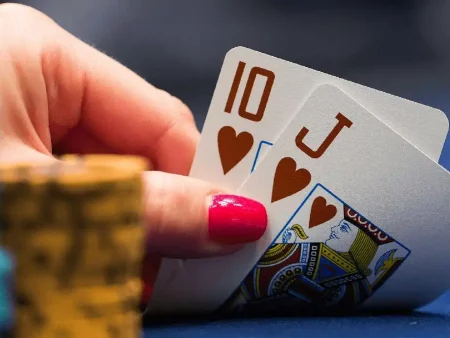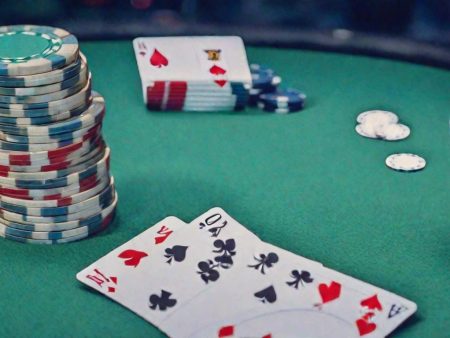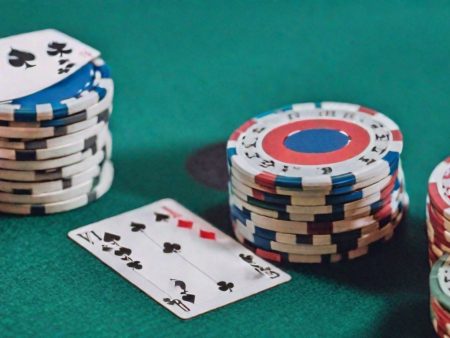In the world of poker, the term “overpair” refers to a situation where a player holds the strongest pair, consisting of cards higher than any of the community cards on the table. While it may not always have high value due to its common occurrence, it’s still important to understand it and use it wisely.
It’s essential to realize that overpairing happens in poker games involving community cards, such as Texas Hold’em or Omaha. For example, in Texas Hold’em, if you have two kings (KK) and the community cards reveal 2-7-J-Q-A, your kings form an overpair, as they are the highest pair in your hand. While an overpair can be a powerful hand, it can also become a trap if not played correctly.
An overpair is considered a strong hand, and players often seek to maximize its potential by betting in ways that can either lure opponents into making costly mistakes or force them into bad situations. However, it’s also important to be aware of the possibility that stronger hands—like straights, flushes, or full houses—could appear, and this should be factored into your strategy.
One of the main risks when holding an overpair is failing to recognize stronger hands on the table and betting too aggressively, which could result in losing a significant portion of your stack. Therefore, it’s crucial to assess the entire situation, including potential combinations your opponents might have.
Read also: What is an overcard in poker.
What is an Overpair? Examples
Let’s look at some examples of overpair situations in poker, especially in a live casino setting:
- Imagine the following scenario: three community cards are revealed: a 2, a 4, and a 9, each from a different suit. You have two tens in your hand. In this case, the combination of two tens is not referred to as a pair, but rather an overpair, because the highest community card is a 9.
- Now let’s change the scenario a bit. A player in an online casino has the same pair of tens in their hand. The community cards revealed are 7, 3, and a Jack. Here, the tens do not form an overpair, because there’s a Jack on the board, which is higher than the tens.
- Here’s another example: the community cards are 7, King, and 9, all of different suits. The player has a King and Ace in their hand, both of different suits. In this case, there’s no overpair, as the King on the table already matches one of the cards in your hand, so it doesn’t qualify as an overpair.
This is the simplest explanation of what an overpair is and when it applies. It’s important for beginners to grasp these concepts to feel more confident at the table.
Advantages of Overpairing
What are the advantages of holding an overpair in poker? If you’re lucky enough to have an overpair of tens, jacks, queens, kings, or aces, it means the following:
- Generally speaking, this combination is a strong hand and offers a good chance of winning. An overpair provides stability, allowing you to continue playing with confidence, especially if no higher pairs are present on the board.
- Since your pocket cards are hidden from your opponents, your game becomes more unpredictable. This can give you control over the flow of the game and allow you to bluff more effectively.
- If there are no dangerous cards or signs of stronger hands among the community cards, you can adopt a more aggressive strategy, building the pot and increasing your winnings.
However, it’s important to remember that even a strong hand like this doesn’t guarantee a win. Poker is a mix of chance and strategy, and your ability to read your opponents, as well as how you assess the community cards, plays a crucial role in achieving success.
Two Categories of Overpair Strength
The strength of a given pair depends on its rank. There’s little point in discussing the strength of pairs like fives and sixes, as they can easily be beaten by higher combinations. However, high and medium-strength overpairs are worth considering in more detail. A pair consisting of queens, kings, or aces is considered to be the most powerful for forming an overpair, offering the best chances of winning. For example, if you have a pair of queens in your hand and no community cards are higher than a queen, the likelihood of your opponents beating your hand is quite low. Overpairs of high cards are difficult to beat and typically require a strong hand, such as a top pair, to challenge them.
On the other hand, overpairs of tens or jacks are considered to be of medium strength. These hands are not as powerful as Broadway hands (queens, kings, aces) and can be vulnerable. For example, if you have a pair of tens and the community cards are 7, 3, and Jack, your hand isn’t as strong, and your opponents might have better hands, like top pair, two pair, or even a straight. It’s important to note that the strength of an overpair depends not only on your pocket cards but also on the community cards, betting patterns, and your opponents’ playing styles. In poker, it’s crucial to analyze all these factors and make decisions accordingly.
Read also: What is an add-on in poker and how to use it in tournaments.
When to Fold an Overpair
Many players view an overpair as a guaranteed winning hand, especially with kings or queens, and they’re reluctant to fold it. However, there are certain situations where folding an overpair might be the smartest decision. Here are some key scenarios when you should consider folding an overpair:
- If there’s an aggressive player raising every street, there’s a chance they have a stronger hand.
- If the community cards show potential for straight or flush draws.
- If your opponents are consistently raising and going all-in.
- If you’re in an early position with many players still to act after you.
It’s important to remember that there are no absolute rules in poker. Whether to fold or continue with an overpair depends on many factors. The key is to analyze the situation, consider your opponents’ playing styles, and make the decision that seems the most profitable based on the available information. In conclusion, an overpair is a powerful hand, but its value depends on several factors, including the community cards and your opponents’ strategies. Being able to assess the situation and make informed decisions is crucial to poker success. Want to play smarter and maximize your wins? Read expert casino articles – tactics, strategies, and real-world examples from professionals.
FAQ: What is an overpair in poker
What is an overpair in poker?
An overpair in poker is a pocket pair in your hand that is higher than any of the community cards on the board. For example, if you hold a pair of Queens and the board shows 5, 8, and 10, your Queens are an overpair.
Why is an overpair considered a strong hand in poker?
An overpair is strong because it beats any single-pair hand made from the board. It often puts you ahead of opponents who are drawing or holding weaker pairs.
How should you play an overpair in poker?
Playing an overpair involves being aggressive while remaining cautious. You should bet to protect your hand from draws, but also consider your opponents' possible hands to avoid overcommitting against a stronger hand.
What are the risks of playing an overpair?
The main risk is overestimating its strength, especially if there are potential straights, flushes, or trips on the board. Misreading the board or your opponents’ actions can lead to losing big pots with an overpair.
How does position influence the play of an overpair?
Position plays a critical role when you have an overpair. Acting later gives you more information about your opponents' bets and tendencies, allowing you to decide whether to value bet, raise, or fold.
When should you fold an overpair?
You should fold an overpair if the board shows strong potential for a better hand, such as a completed straight, flush, or trips, and your opponent is betting or raising aggressively. Trust your reads and don’t hesitate to fold if the situation demands it.
What are common mistakes players make with overpairs?
Common mistakes include overplaying the hand, failing to recognize board texture, and not adjusting to opponents’ actions. It’s important to stay flexible and avoid being overly committed to the strength of your overpair.






